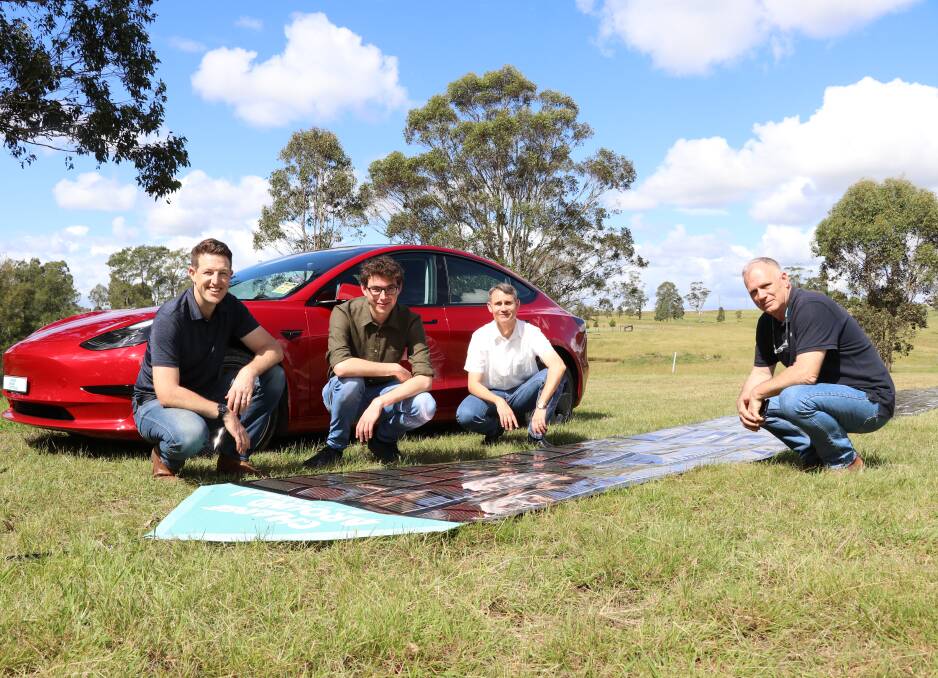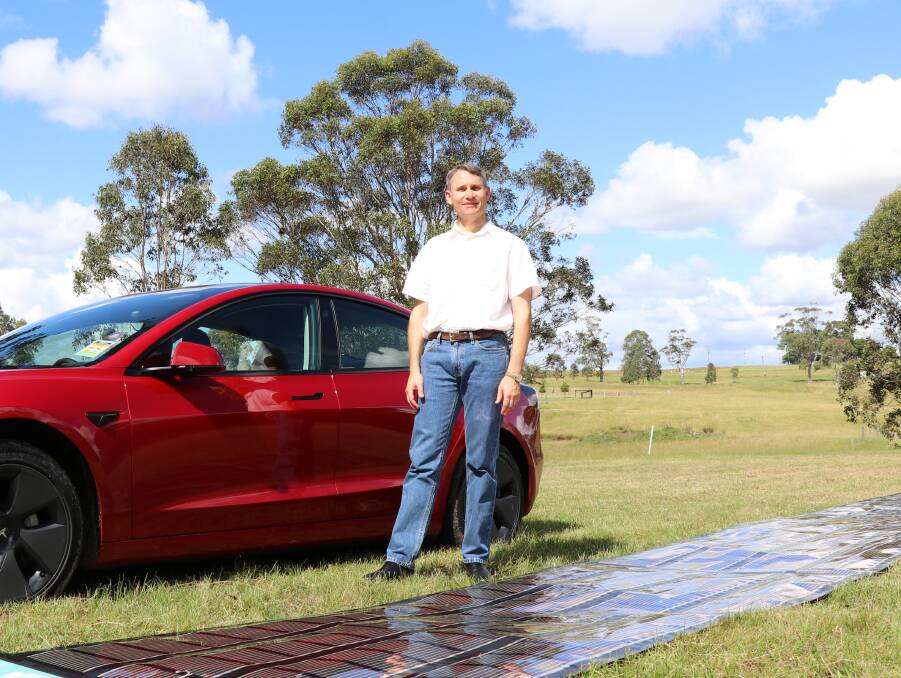
The Newcastle-based pioneer of printed solar cell technology, Professor Paul Dastoor, believes it is possible that the cells could be incorporated into a commercially available vehicle within the next five years.
Subscribe now for unlimited access.
$0/
(min cost $0)
or signup to continue reading
Professor Dastoor and his team of University of Newcastle researchers from NSW's Hunter region are presently testing a cell array that will power a Tesla electric car on the 15,100-kilometre Charge Around Australia challenge in September.
The solar panels, each 18 metres long will be rolled out beside the vehicle to soak up sunlight when it needs a charge.
"This is actually an ideal test bed to give us information about how we would go about using and powering technology in other remote locations, for example, in space," Professor Dastoor said.
IN OTHER NEWS:
The team also plans to visit about 70 schools to give students a taste of what their transport futures may hold as part of the 84 day journey.
"We will be rolling out the printed solar and running demos. It's all about raising awareness," Professor Dastoor said.
"I think that is one of our weaknesses in Australia that we haven't embraced the concept of electric vehicles for a variety of reasons."
While some specialised vehicles already use solar cell technology, Professor Dastoor said he believed the incorporation of printed solar cells into a commercially available vehicle was imminent.
"There's still lots of things to work through but essentially it's not that far away, probably three to five years," he said.

"Most vehicle journeys are around 20-30km a day. You can probably generate that sort of charge by leaving your car outside in the sun as if was parked at your workplace."
But while the technology is moving ahead in leaps and bounds, Australia's take-up of electric vehicles remains in the slow lane.
Professor Dastoor supported calls for governments and companies to purchase electric vehicles, which will then be passed on to the second hand market.
Other countries have also introduced discounted road taxes for electric vehicles.
"It's inevitable really regardless of the flavour of government. We are going to see it [the transition to electric vehicles]," he said.
"What we would like to see is a much firmer timeframe with the government saying 'right, come 2028 there will be no new petrol cars."
Professor Dastoor's team is also working closely with Professor Behdad Moghtaderi who is researching applications for green hydrogen fuel technology.
"Green hydrogen needs large-scale renewable power that we can generate," Professor Dastoor said.


